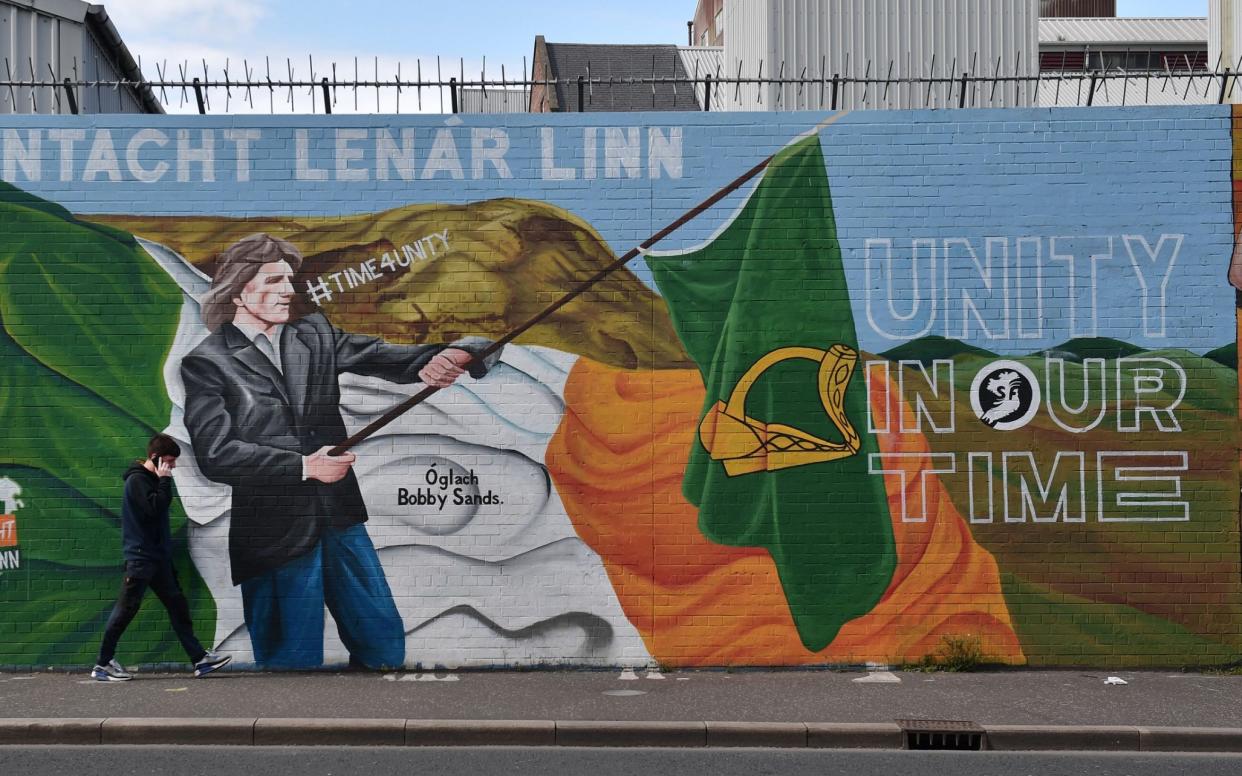United Ireland ‘would cost Dublin £17bn a year for two decades’

A united Ireland could cost Dublin more than £17 billion every year for two decades, according to a new study, which has warned of an “immediate, major reduction” in Irish living standards if reunification happens.
Ireland would have to raise taxes by about 25 per cent and slash public spending if Northern Ireland joined it after leaving the United Kingdom, the study suggests.
The Irish think tank report said high costs would be incurred if Dublin immediately raised social security benefits and public sector wages in Northern Ireland, the poorest region of the UK, to match the rest of Ireland, which is predicted to have a £56.3 billion budget surplus by 2027.
“Even though Ireland has a much higher national income, funding the needs of the people of Northern Ireland in a united Ireland would put huge financial pressure on the people of Ireland, resulting in an immediate major reduction in their living standards,” Prof John FitzGerald said.
Prof FitzGerald, one of the authors of the Institute of International and European Affairs paper, likened the €20 billion (£17 billion) a-year bill to “a third of a bank bailout every year”.

The bill for reunification, which would require successful referendums on both sides of the border, would drop to £6.86 billion a year if the UK agreed to write off Northern Ireland’s share of the national debt and to continue to pay state pensions to people who made National Insurance contributions, the study said.
That was unlikely, the think tank cautioned, because the UK Government would be wary of bolstering the case for Scottish independence, and Dublin would be at a negotiating disadvantage over the imperative to deliver unity after referendums in favour of reunification.
“Looking for somebody else to pay for unification is not going to happen. If it happens, we’ve got to pay for it ourselves,” Prof FitzGerald told the broadcaster RTE on Thursday.
He said the costs of reunification would be reduced if Northern Ireland reformed its sluggish economy to boost productivity, which would cut the deficit .
Sinn Fein, which won the last Northern Ireland Assembly elections and has a commanding lead in the Irish polls before elections in the next 12 months, has called for votes on a united Ireland by 2030.
The Good Friday Agreement says the Secretary of State for Northern Ireland should call a border poll if it “appears likely” a majority would back unity.
The Government insists this condition has not been met. Recent polls show most Northern Irish voters want to remain in the UK, despite the debate over reunification being given fresh impetus by Brexit, which most in the region opposed.
The think tank’s analysis focused on the subvention paid from Westminster to Northern Ireland, which is the shortfall between what is raised in taxes in the region and the amount spent on public services.
It adjusted pre-pandemic data from 2019 to reflect a united Ireland, such as less defence spending, higher payments to the EU and greater corporation tax revenue, and reached a subsidy of just under £9.4 billion.
This would leap to the “huge sum” of more than £17 billion, equivalent to 10 per cent of national income, if Northern Irish benefits and public sector wages were raised immediately to the level of those in the Republic.
Some costs would be offset by Northern Ireland rejoining the EU as part of a united Ireland but this would take “considerable time”, the study said.
“There would have to be a dramatic increase in taxation and/or a major reduction in expenditure,” the report added, and it would be “difficult” to postpone standardisation “for long”..
Some 44 per cent of Irish voters said they would be less likely to vote for a united Ireland if they would be £3,400 worse off as a result, research published in the Irish Times in December found.
